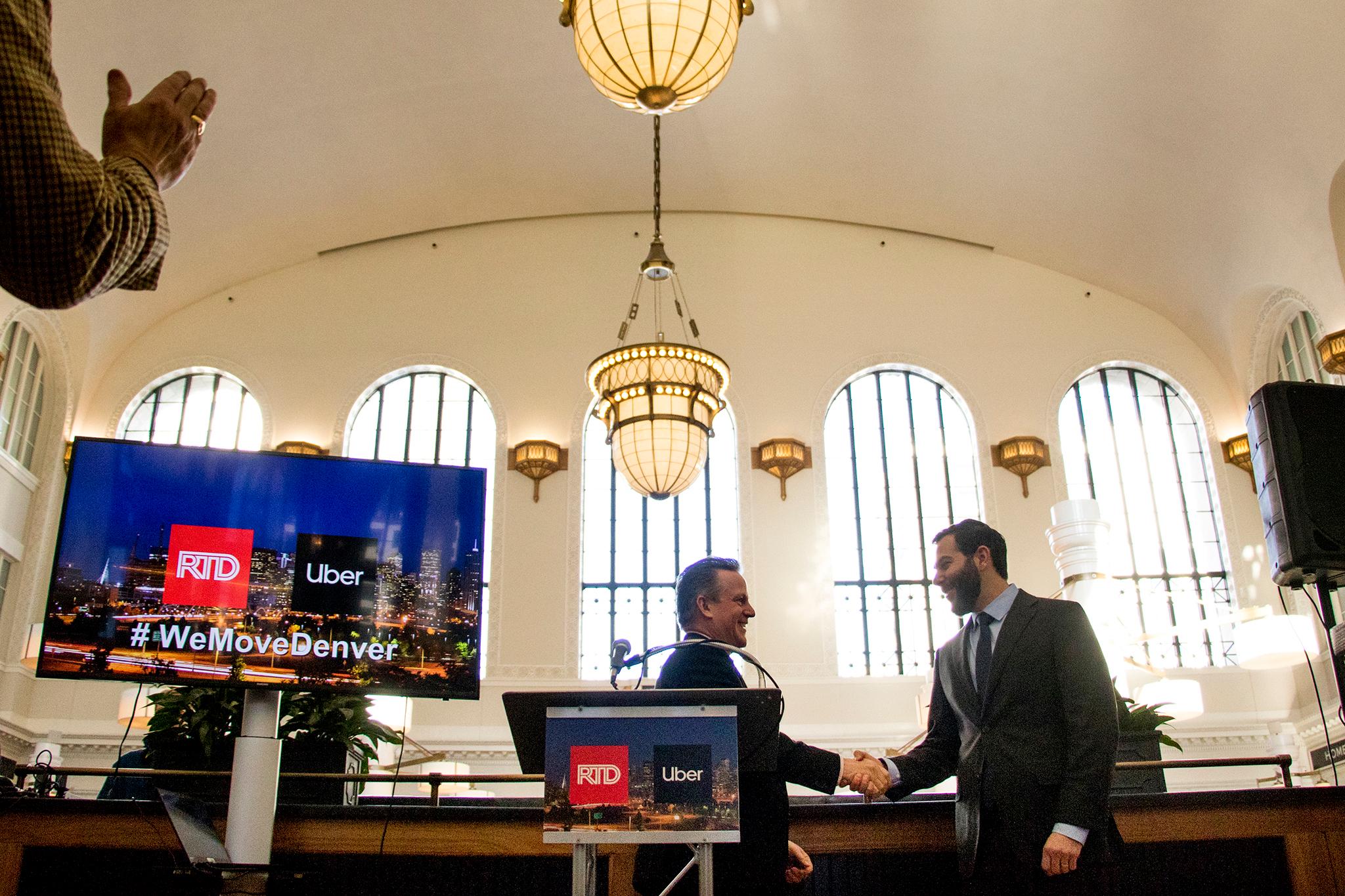Uber apps in the Denver area will soon display the cost and real-time schedule of bus and train routes so that people can make a more informed choice of how to move around the city. Riders will also be able to buy a transit fare through the app.
Some apps will get the route update as early as today. All new functions will go live for all users sometime next month.
Denver is the first and only city in the world to receive this version of the Uber app. The company hopes to roll the idea out elsewhere if all goes well.
Ride-hailing companies like Uber and Lyft compete directly with transit systems like RTD and add congestion to city streets, according to multiple studies. Yet the private multinational company and the local public transit agency say the partnership will somehow benefit both organizations.

"Uber's strategy is moving towards being the all-in-one app to let people know how to get to their destination, however is best for them," David Reich, the company's head of transit, said at a Union Station press conference Thursday. "And in many of those situations, it's transit. Transit is much bigger, transit does hundreds of billions of trips a year, and for us to live out that vision, we need to make sure transit's an integral part of Uber."
Asked how attempting to complement -- rather than compete with -- transit helps Uber's bottom line, Reich said making money is not the goal of this partnership.
RTD's rail ridership is rising, but its bus ridership is falling as the agency cuts service and wrestles with a bus driver shortage. RTD General Manager and CEO Dave Genova said the agency gets exposure from the deal.
"I think from the RTD perspective, we're excited about this app because it broadens awareness," Genova said. "Every time the Uber app gets opened, whether you live in the Denver metro region or whether you're a visitor, you see a transit trip. So that's an incredible benefit for us on the transit side."
Denver' aims to double its transit use by 2030. But the transit agency does not have a ridership goal associated with this partnership, Genova said.
I asked Susan Shaheen, a University of California Berkeley professor and transportation tech expert, what she thought of the idea. She answered, via email:
Asked what type of routes may be more convenient by bus or train other than the airport, Genova pointed to Denver's dense areas with frequent service, like around downtown. Shorter trips in congested areas, he said, are prime candidates for Uber.











